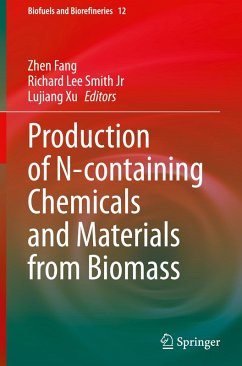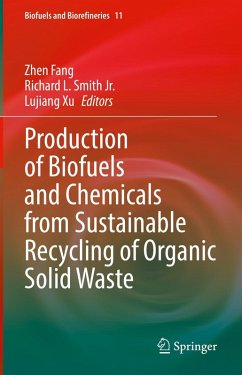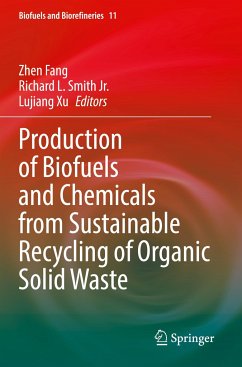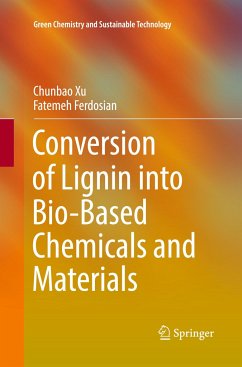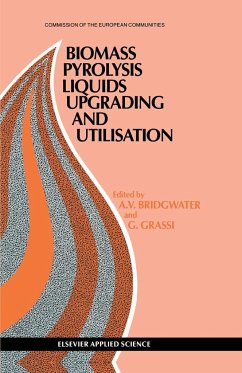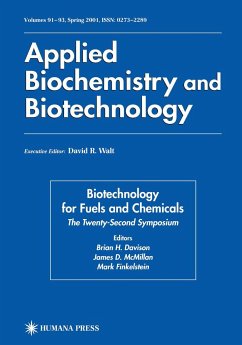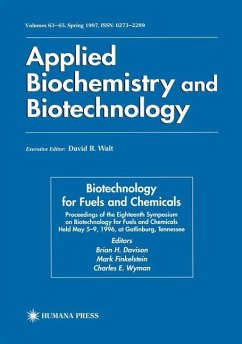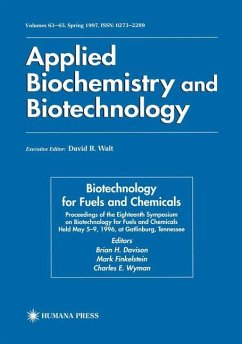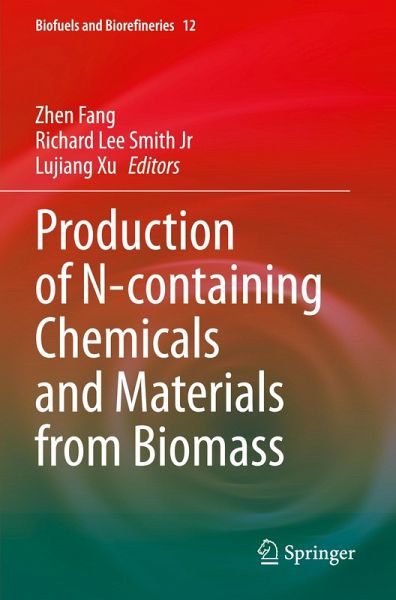
Production of N-containing Chemicals and Materials from Biomass
Versandkostenfrei!
Versandfertig in 6-10 Tagen
136,99 €
inkl. MwSt.

PAYBACK Punkte
68 °P sammeln!
This book is a collection of studies on state-of-art techniques developed for producing value-added N-containing chemicals and N-doped carbon materials from renewable sources via sustainable technologies. Aiming to improve conversion effectiveness and develop innovative techniques for new value-added N-containing products, topics in the text address recent advances, assess and highlight promising methods or technological strategies, and outline direct conversion routes for conversion of renewable resources to N-containing chemicals and materials. World-renowned authorities, experts, and profes...
This book is a collection of studies on state-of-art techniques developed for producing value-added N-containing chemicals and N-doped carbon materials from renewable sources via sustainable technologies. Aiming to improve conversion effectiveness and develop innovative techniques for new value-added N-containing products, topics in the text address recent advances, assess and highlight promising methods or technological strategies, and outline direct conversion routes for conversion of renewable resources to N-containing chemicals and materials. World-renowned authorities, experts, and professionals have contributed individual chapters in selected areas to cover the overall topic comprehensively. In addition to researchers and professionals in the field, educators teaching university courses on biomass transformation, biomass energy, energy materials, heterocyclic chemistry, resource materials and sustainable development and green chemistry will find the text informative with new international perspectives.



